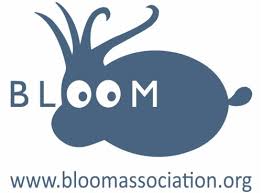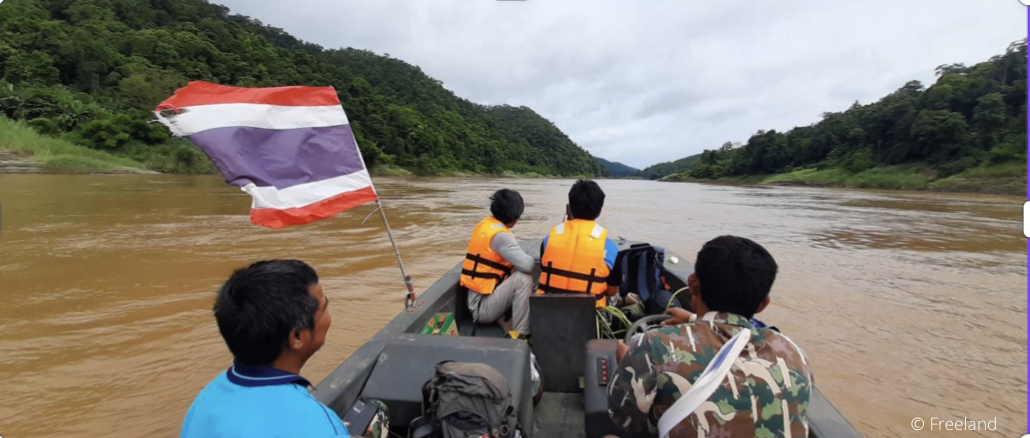With support from our generous donors and grantors Wildlife Asia supports many other field projects across Southeast Asia. We recognise that from small grass-roots initiatives, genuine conservation impact can grow and therefore endeavour to direct our resources to local, community-driven projects. Some of the projects we have recently provided funding to include;
Planet Indonesia
Indigenous Dayak communities have a deep cultural and spiritual connection to their land, but over the past 50 years, this connection has been threatened by logging concessions and poorly designed protected areas that ignored traditional land use and rights. These changes cut off villages from forest resources and essential services like health and education. With support from Oak Foundation, Wildlife Asia partners with Planet Indonesia in two key landscapes in West Kalimantan: the 160,000-hectare Gunung Nyiut Penrissen Forest Complex on the Malaysia border and the 229,000-hectare Gunung Naning protection forest within the ‘Heart of Borneo’. These areas are home to rare species including hornbills, gibbons, and Bornean Orangutans. Planet Indonesia is helping communities secure rights to 18,200 hectares of biodiverse forest through Indonesia’s social forestry program, which restores customary land rights and supports sustainable management. The long-term goal is to certify over 30 villages, protecting ecosystems and strengthening Indigenous rights. Learn more about Planet Indonesia’s work across the landscape.
Bloom Association
BLOOM Association Hong Kong is a marine conservation NGO focused on reducing the unsustainable consumption of marine species such as shark fins, sea cucumbers, and reef fish. Since its founding in 2009, it has conducted groundbreaking consumer research and DNA studies of dried seafood to expose the trade in endangered species. Its advocacy has helped shift public attitudes and contributed to policy changes, including the removal of shark fin from government banquets and luxury hotel menus. In addition to research and advocacy, BLOOM Hong Kong leads the 114°E Reef Fish Survey, a long-term citizen science project documenting Hong Kong’s marine biodiversity. The organisation works closely with schools, scientists, and the hospitality sector to promote sustainable seafood choices and raise awareness of ocean conservation. Through education, science, and community engagement, BLOOM Hong Kong is building a more sustainable future for local marine life.
International Animal Rescue
International Animal Rescue is tackling orangutan conservation on every level in Indonesia, including the rescue and rehabilitation of individual animals and their reintroduction into the wild; forest protection and reforestation; community outreach and education, and collaboration with all stakeholders to secure the long term future of the species, the local communities, and the forest habitat on which animals and people depend for survival. The team is based in West Kalimantan – a province in the southern, Indonesian part of the island of Borneo. At IAR’s conservation centre in Ketapang, orangutans that have been taken from the forest and kept as pets undergo lengthy rehabilitation so that they can return to the wild and live as nature intended.
Save Vietnam's Wildlife
Save Vietnam's Wildlife (SVW) is a local non-profit established in 2014 with the mission to reverse ecosystem decline, protect habitats, and recover threatened species in Vietnam. Thousands of animals are illegally traded in Vietnam each year for meat, traditional medicine, pets, and souvenirs. SVW rescues confiscated animals, providing safe placement and helping reduce illegal trade. They’ve rescued over 4,280 animals, with nearly 80% successfully rehabilitated. Media coverage of rescues raises public awareness and encourages stronger government action. To secure habitats for released animals, SVW created anti-poaching teams to support government rangers. These efforts have led to the removal of over 16,000 traps, 137 guns, 1,177 illegal camps, and the arrest of 952 poachers—resulting in a decline in threats and a rise in wildlife populations in Pu Mat National Park. This model has since expanded to four more protected areas. SVW also conducts field and social research to inform conservation efforts and empower communities, while working with government to improve wildlife and forest protection policies. Learn more about SVW’s vital work by visiting their website.
Mabuwaya Foundation
The Mabuwaya Foundation is a vital conservation partner working to protect some of the Philippines’ most threatened species and habitats within the Northern Sierra Madre (NSM)—the country’s largest remaining forest block and a critical biodiversity hotspot. Since 2003, Mabuwaya has partnered with Indigenous Agta communities and local governments to establish 15 Local Conservation Areas (LCAs), safeguarding habitat for the Critically Endangered Philippine Crocodile, Isabela Oriole, Hawksbill Turtle, and other endemic wildlife. With funding support from the Oak Foundation, Wildlife Asia is proud to support Mabuwaya's efforts to strengthen community-led protection of biodiversity and ancestral lands, while promoting sustainable livelihoods such as agroforestry and ecotourism. In a region facing intense pressures from deforestation, unsustainable farming, and extreme climate events, Mabuwaya’s work is essential in linking conservation outcomes with improved community resilience and wellbeing. Mabuwaya aim to ensure that these LCAs remain strongholds for biodiversity—protected by and for the people who call them home. For more information about the outstanding work delivered by Mabuwaya Foundation please visit their website.
Freeland Foundation
Freeland is an International NGO headquartered in Thailand that helps governments and society combat wildlife and human trafficking, with a vision of making the world free of wildlife trafficking and human slavery. Since inception in 2000, Freeland has introduced innovative programmes across Southeast Asia to investigate and counter illegal supply chains. Activities protect endangered wildlife by raising local capacity to reduce poaching, conduct counter trafficking investigations, law revision, and eliciting consumer behaviour change to reduce demand for wildlife products. Wildlife Asia and Freeland formed a partnership in 2019 and subsequently developed an agreement with Thailand’s Department of National Parks, Wildlife and Plant Conservation (DNP) to undertake a two year (2020-2021) big cat monitoring project in Northwest Thailand’s Salawin Wildlife Sanctuary. We have provided ongoing support for a new project, monitoring wildlife of high conservation value in this landscape for 2022-2024. We also hope to expand this support in to other areas as Freeland conducts important conservation projects in seven sites adjoining the Thai/Myanmar border. Find out more about Freeland’s work across the landscape.






